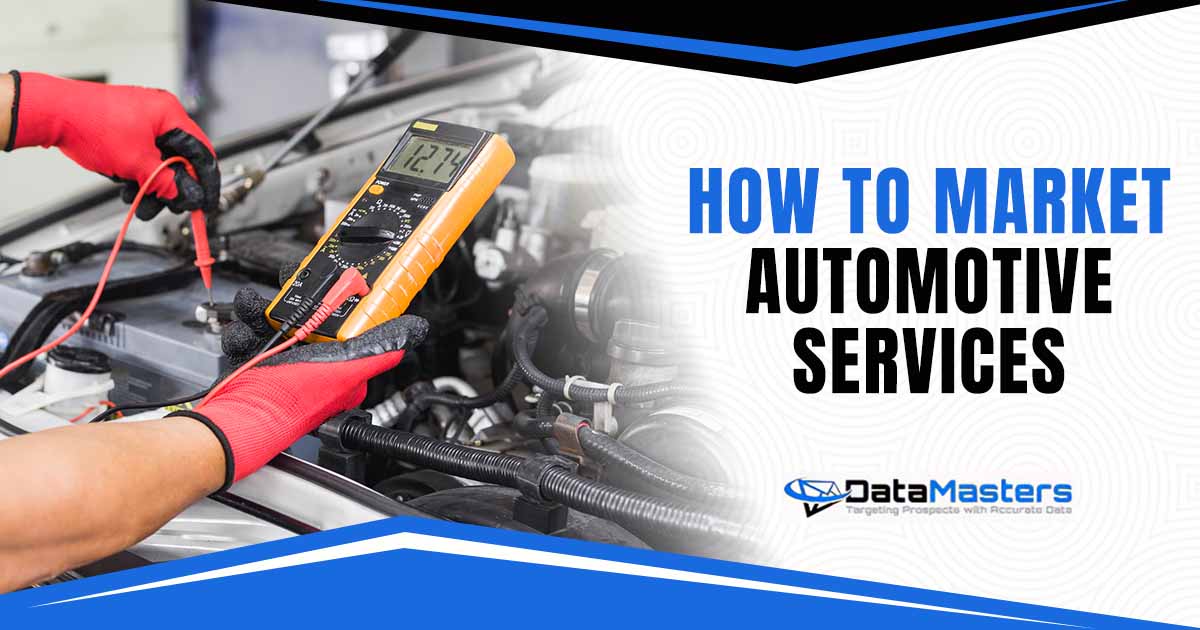The automotive industry serves a diverse range of customers. To successfully engage and convert these customers, businesses must understand who they are and what they want. Identifying the right target audience for automotive products and services drives sales and growth. This blog explores the primary customer segments within the automotive industry and offers insights into how businesses can better reach these potential buyers.
Understanding the Automotive Industry’s Diverse Customer Base
The automotive industry’s target customers vary significantly regarding needs, purchasing behaviors, and preferences. Broadly speaking, customers can be categorized into two main groups: individual consumers and businesses. Each group has unique requirements influencing their purchasing decisions, which companies must recognize to develop effective marketing strategies.
Individual Consumers: The Primary Buyers of Vehicles
Individual consumers make up the largest segment of the automotive market. These customers are typically looking for personal vehicles, whether compact cars, family SUVs, or high-performance sports cars. Age, Income, and lifestyle often drive purchasing decisions within this segment. For example, younger buyers may be attracted to fuel-efficient, eco-friendly vehicles, while families may prioritize safety features and spacious interiors. Additionally, consumers’ increasing interest in electric vehicles (EVs) and hybrid cars has influenced the automotive industry’s target customers as more individuals seek sustainable transportation options.
Fleet Buyers: Businesses and Organizations as Key Customers
Fleet buyers represent another critical segment of the automotive industry. These customers are typically businesses, government agencies, or other organizations purchasing multiple operational vehicles. Fleet buyers may need cars for delivery, transportation, or employee use. Depending on the industry, commercial fleet needs can range from small cars and vans to larger trucks and specialized vehicles. For example, logistics companies may require large trucks to transport goods, while a tech company may need a fleet of electric cars for its employees. Recognizing these varied business needs helps automotive companies tailor their offerings to meet the specific demands of fleet buyers.
Segmenting Automotive Industry Target Customers
To effectively market to automotive industry target customers, businesses must understand how to segment these audiences. Segmenting customers allows companies to craft tailored messages and offers that align with specific needs and desires. The three main approaches to segmentation include demographic, geographic, and psychographic factors, each of which plays a role in identifying the right customers.
Demographic Segmentation
Demographic segmentation divides the market based on age, Income, education, and family status. In the automotive industry, these elements significantly influence the types of vehicles customers are interested in. For example, younger buyers, especially millennials and Gen Z, may prioritize affordability and technology features in their cars. On the other hand, older consumers may focus on comfort, reliability, and safety. Income also plays a significant role—higher-income individuals may be drawn to luxury cars. At the same time, middle-income buyers may seek vehicles with a strong balance of features and value. Understanding these demographic factors helps businesses effectively target their automotive industry customers and create personalized marketing campaigns.
Geographic Segmentation
Geographic segmentation considers where customers live and how it affects their vehicle preferences. Urban and rural areas often have very different automotive needs. Due to limited parking and heavy traffic, urban customers may prefer smaller, more fuel-efficient cars. In contrast, customers in rural areas may be more likely to buy trucks or SUVs, as these vehicles are better suited to long-distance driving and off-road conditions. Additionally, regional preferences also play a role in vehicle selection. For example, consumers in regions with colder climates may be more inclined to purchase vehicles with all-wheel drive or four-wheel drive capabilities. At the same time, those in warmer areas may prioritize features like air conditioning and convertible options.
Psychographic and Behavioral Segmentation
Psychographic segmentation divides the market based on lifestyle, values, and attitudes. This approach is increasingly important in the automotive industry as consumers’ buying decisions are influenced by their personal values. For instance, environmentally conscious consumers are more likely to opt for electric or hybrid vehicles, aligning with their desire for sustainability. Similarly, luxury buyers are often motivated by status and prestige, gravitating toward high-end brands known for their performance and design. Behavioral segmentation, which looks at purchasing behaviors and brand loyalty, provides valuable insights. Some customers may prioritize vehicle safety, while others focus on technological innovations or fuel economy. Understanding these psychographic and behavioral factors helps businesses identify high-value customers and develop marketing strategies that resonate with them.
The Role of Technology in Targeting Automotive Customers
As technology advances, it plays an increasingly important role in how businesses connect with target customers in the automotive industry. From digital marketing strategies to the growing trend of online vehicle purchases, technology enables automotive companies to understand better and engage their customers.
Digital Marketing and Data-Driven Insights
Digital marketing has revolutionized how businesses in the automotive industry interact with their target customers. Using data-driven insights, companies can analyze consumer behaviors and preferences to craft personalized campaigns that appeal directly to their ideal customers. For example, leveraging tools like Google Analytics, social media platforms, and customer relationship management (CRM) software allows businesses to track customer interactions and preferences. This data can be used to segment audiences more effectively and deliver tailored messages, such as advertisements for specific vehicle models based on a customer’s previous browsing history. Targeted digital ads, email marketing campaigns, and social media content can all be customized to speak to automotive customers’ specific needs and desires, improving engagement and conversion rates.
The Rise of Online Car Sales
Another significant impact of technology in the automotive industry is the rise of online car sales. With the growth of e-commerce, many consumers are now comfortable purchasing vehicles online, from browsing models to finalizing their transactions. This shift is particularly prominent among younger buyers, who prefer the convenience of shopping from home. For automotive businesses, offering virtual showrooms, detailed vehicle information, and interactive tools such as 360-degree views of cars can help replicate the in-person buying experience. Additionally, many dealerships now provide online financing options and home delivery, making purchasing even more convenient. Businesses that embrace these technological trends can better meet the evolving expectations of automotive industry customers, driving sales and customer satisfaction.
Challenges in Reaching Automotive Industry Target Customers
While the opportunities for targeting automotive customers are vast, businesses in the industry must also navigate several challenges. Consumer preferences are constantly shifting, and the market is becoming increasingly saturated, making it difficult to stand out. Recognizing these challenges and adapting to them is essential for success.
Changing Consumer Preferences
The automotive industry’s target customers are evolving rapidly, with shifts in consumer preferences impacting marketing strategies. One of the most significant changes in recent years is the increasing demand for electric vehicles (EVs) and hybrid cars. Many customers prioritize sustainability and reduced carbon footprints, increasing interest in environmentally friendly cars. Additionally, consumers are increasingly drawn to advanced safety features, connectivity, and autonomous driving technologies. As these trends continue to shape the market, automotive businesses must proactively develop and market vehicles that align with these new consumer expectations. Staying ahead of these shifts is critical to attracting customers and maintaining a competitive edge.
Overcoming Market Saturation
The automotive industry is highly competitive, with numerous brands and models available to customers. As a result, standing out in the crowded market can be challenging. Businesses must differentiate themselves through unique selling points, such as superior customer service, innovative technology, or exclusive vehicle features. Creating a strong brand identity and fostering customer loyalty through excellent experiences can help businesses carve out their market position. Offering targeted promotions, emphasizing product quality, and providing exceptional post-purchase support are effective ways to build long-term relationships with automotive industry customers. By addressing market saturation head-on, businesses can remain top-of-mind for their target customers.
Best Practices for Engaging Automotive Industry Customers
To effectively engage automotive industry target customers, businesses must adopt best practices that resonate with their needs, preferences, and behaviors. Tailoring marketing efforts to address the key motivators for each customer segment can significantly improve the likelihood of conversion and foster long-term loyalty.
Effective Branding and Messaging
A strong brand presence is essential for attracting and retaining automotive industry customers. Effective branding involves communicating what sets a business apart from its competitors and aligning the brand message with customer values. For instance, eco-conscious consumers may respond well to messaging highlighting sustainability, such as promoting electric vehicles (EVs) or fuel-efficient options. On the other hand, consumers who value safety may be more attracted to marketing materials emphasizing advanced driver-assistance systems (ADAS) or superior crash-test ratings. Tailoring messaging to specific customer segments allows businesses to connect more effectively with their target audience and build brand recognition.
Additionally, focusing on a clear value proposition—affordability, luxury, or innovation—helps businesses position their vehicles in the right light. This targeted approach also increases the chances of long-term customer loyalty, as individuals are more likely to return to a brand that consistently meets their expectations and aligns with their values.
Leveraging Partnerships and Influencer Marketing
Collaborating with industry partners and influencers can significantly amplify a business’s ability to reach new target customers. In the automotive industry, partnerships with tech companies, environmental organizations, or lifestyle brands can create opportunities to access new customer segments. For example, collaborating with a popular tech company to feature a car’s advanced technology features can attract tech-savvy consumers. Similarly, working with environmental influencers or advocacy groups can position a brand as eco-friendly and attract sustainability-minded buyers.
Influencer marketing, particularly with automotive experts or social media influencers, can also significantly shape consumer perceptions. Influencers who align with a brand’s values can help build trust and credibility, particularly among younger buyers likelier to trust peer recommendations than traditional advertising. By leveraging these partnerships, businesses can expand their reach, enhance their reputation, and foster deeper connections with automotive industry target customers.
Partner with DataMasters to Reach Your Target Customers
To effectively reach the right automotive industry target customers, partnering with DataMasters can provide valuable data insights and marketing strategies that drive results. DataMasters helps businesses optimize their marketing efforts by providing data-driven solutions tailored to the automotive sector. Whether you need help refining your audience segmentation, enhancing your digital marketing strategies, or improving customer engagement, DataMasters can assist in maximizing your business’s potential. Contact DataMasters today to get started and connect with the customers who matter most to your automotive business.





